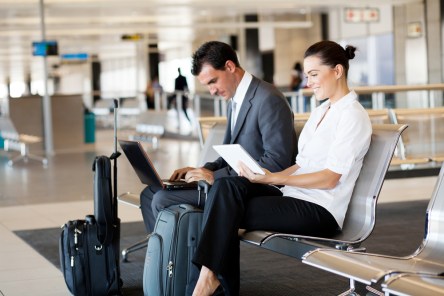For many international business travelers, crossing a border means more than just a stamp in their passport. It also means making sure cell phones and laptops stay secure. Whether it’s an intrusion from foreign hackers or the evermore-invasive surveillance of customs officials, protecting sensitive data – both personal and business – has never been more complicated. As a result, more and more jet-setting corporate employees are making sure to secure their devices before their trip and while on the move. “Although mobile devices can facilitate connecting back to headquarters and maintaining workflow, the risk for exploitation of these devices and the information accessed can greatly increase on overseas travel,” warns the US Department of State Overseas Security Advisory Council (OSAC). Before Departure The OSAC’s best practices guide for traveling with mobile devices suggests several steps business travelers should take before stepping out the front door. As a matter of course, all nonessential devices should simply be left at home. Data can also be kept local through a backup on an external hard drive or a secure cloud-based service. For travelling devices, it’s important to make sure all software and apps are up-to-date. That means upgrading passwords with stronger variables and initiating file encryption with tools provided by BitLocker, TrueCrypt or Apple Firevault. Bluetooth and GPS should also be disabled and available firewalls enacted. During Travel Once you’re on the road, there are plenty of ways for your device to be compromised. In addition to maintaining physical control whenever possible, the best way to protect your device in transit is to power down before entering customs. As an added step, Wired recommends disabling any biometric access – like Apple’s TouchID – and sticking to PIN accessibility. It’s good practice to disable automatic Wi-Fi connections and use a...

